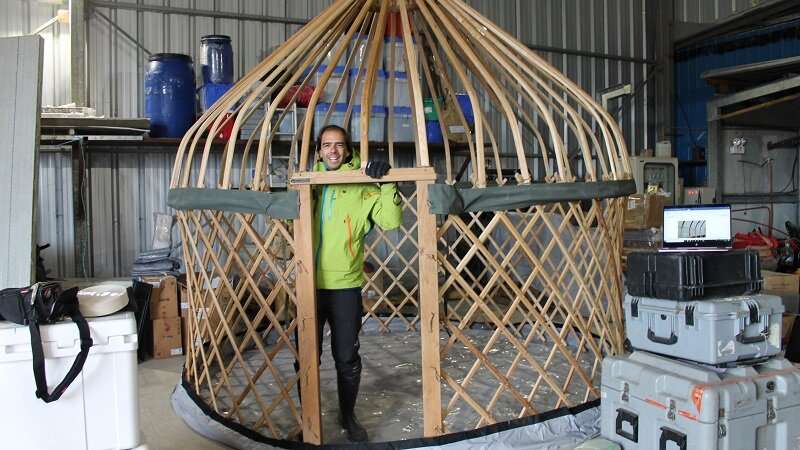Extreme eco tent tested in Antarctica

A tent made from experimental eco-materials has been taken to one of the harshest climates in the world to test its endurance.
The tent is made from space blanket materials, re-cycled yacht sails and plastic bottles and will be tested in the extreme temperatures including 200mph biting winds of Antarctica.
And the research could also impact on the future design of buildings in Scotland.
Heriot-Watt Emeritus Professor, Sue Roaf has been working with the Universities of Lisbon and Bahrain on the part of the Polar Lodge Project and is currently on-site in the South Pole with ProPolar expeditionary teams.
Professor Sue Roaf said: "We have taken the best of the traditional wisdom of an Asian yurt, then optimised its form with racing-yacht hull design modelling and experimented with some amazing new materials to lighten the tent and significantly improve its performance.
"This is exciting research that could impact even the design of buildings around us in Scotland."
The traditional yurt style tent is lined with space blankets with an outer weather skin of Dyneema made from re-cycled racing yacht sails. The thermal flooring is of cork and plastic bottle carpets and underlays from WeaverGreen with solar lighting inside.
Designed to be very light to carry, easy to erect and to keep occupants thermally safe in such extreme conditions, the tent is designed to be used for temporary research and expeditions. It can also be used as an emergency shelter in extremely cold regions of the world.
Professor Guedes, who leads the project is clear that it builds on the urgent need to explore new ways of making shelters and buildings perform safely in the world's increasingly extreme weather.
He said: "The lessons were are learning not only relate to light weight, portable, temporary shelters but to the design of truly resilient architecture as well."
The academics hope their research will inform a new generation of resilient tents and buildings in extreme climates and they will next tackle the development of the Desert Lodge to be tested in the Empty Quarter of Saudi Arabia.
The team are currently staying at Chilean Presidente Eduardo Frei Montalva research base, using the same Collin's Harbour site to erect and test the tent on.
Detailed measurements will be taken and the structure will be monitored for 12 months. The initial results of the expedition will be presented at the International Extreme Comfort Conference to be held at Heriot Watt University in Dubai between 10-14 April 2019.
Provided by Heriot-Watt University


















